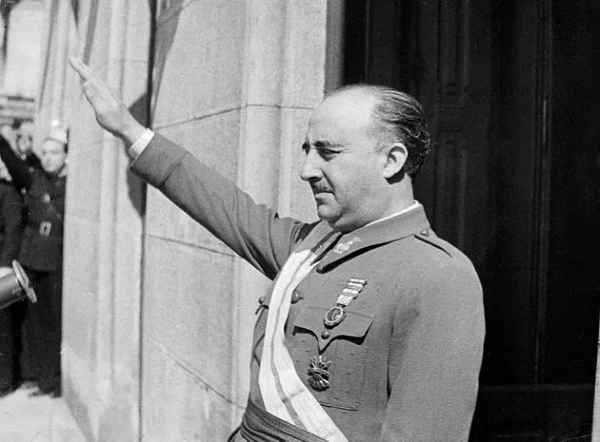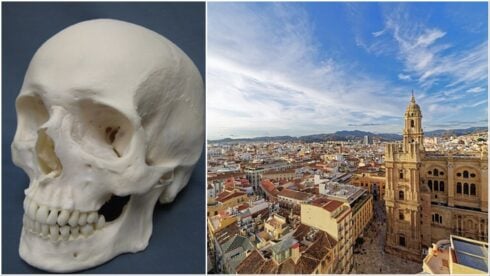ONE in five Spaniards believe the 36-year Franco dictatorship was either ‘good or very good’ for the country, according to a shocking new national survey.
And the results were not limited to the older generations – the view was equally shared among young adults aged 18 to 24, who displayed an unnerving affinity for the dictator when quizzed.
The finding comes from the October barometer by Spain’s state pollster, the Centro de Investigaciones Sociologicas (CIS), which found 21.3% view Franco’s rule positively.
The poll, published this week, comes just weeks before the 50th anniversary of the dictator’s death on November 20, 1975.
READ MORE: Revealed: The disturbing history of the Swedish rapper shot dead in Marbella in revenge killing

While 39.1% of respondents described Franco’s regime as ‘very bad’ and 26.4% as ‘bad’, a striking 16.8% said it was “good” and 4.5% ‘very good’.
A further 6.1% called it ‘so-so’ and 7.2% either did not know or refused to answer.
In a segment on Spanish television, young people interviewed in Madrid and Valencia appeared divided.
Some dismissed Franco’s crimes, with one saying ‘Franco wasn’t perfect, but he also did quite good things.’
While another remarked: “Older people have told us they lived better, especially with the housing issue.”
Others claimed that ‘some tough things are needed for a country to move forward’ and that ‘a little repression, maybe even a war, is necessary’.
Another simply said: “Franco’s cool.’
Others believed ‘we are also a bit of a dictatorship right now’, and that ‘war is better than socialism’.
The comments drew widespread criticism, with viewers expressing disbelief that such attitudes persist half a century after the end of the dictatorship.
Historians and victims’ associations have long warned that gaps in education about the Franco era, combined with economic frustration and political polarisation, risk breeding historical amnesia among younger generations.
Spain’s Democratic Memory Law, passed in 2022, obliges schools to teach the realities of repression, censorship and executions under Franco, but implementation remains uneven across regions.
The findings have also reignited debate over Spain’s collective memory and the influence of older generations.
Some analysts say nostalgia for ‘order’ and ‘cheap housing’ persists in families who experienced postwar stability but not the regime’s persecution.
Others point to the role of social media, where clips praising Franco or trivialising dictatorship circulate largely unchecked.
CIS director Jose Felix Tezanos said the barometer ‘reflects enduring divisions in Spanish historical memory’, noting that while rejection of Francoism remains the majority view, positive perceptions among younger citizens show ‘a worrying disconnection from historical reality’.
The Franco dictatorship lasted from 1939 until his death in 1975, marked by mass executions, censorship and suppression of regional languages and opposition parties.
Though Spain transitioned to democracy soon after, the legacy of those decades continues to shape political and cultural life – and, as this latest survey suggests, remains far from settled.
However it should be noted: 71% of young people actually hold a negative view of Franco’s rule.
Click here to read more Politics News from The Olive Press.









I don’t think that the results of the survey are any more indicative of the right wing swing we are seeing in many countries – Italy, France, Sweden, USA and the UK just to mention just a few.
The history books will continue to show reality of the past.